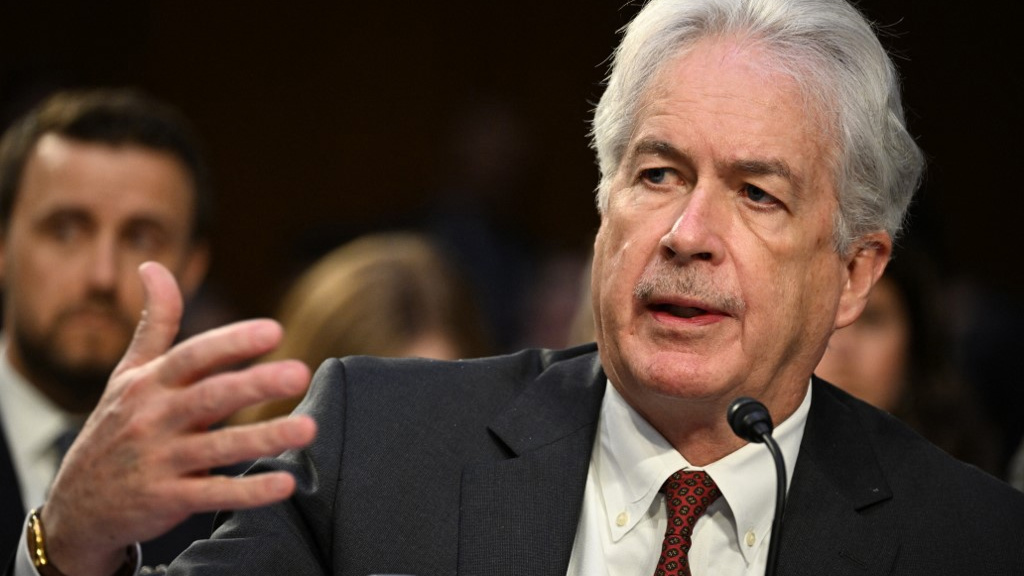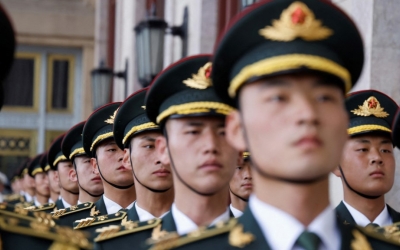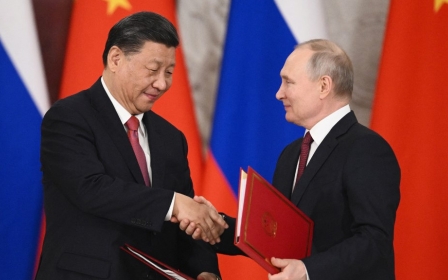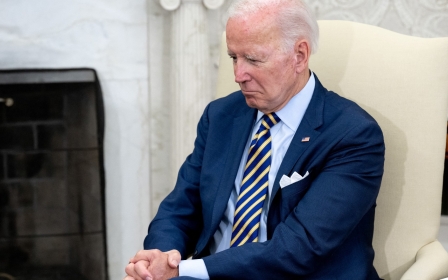Why the West got the Wagner 'coup' wrong and what it can learn from it

Is it possible that EU High Representative Josep Borrell was right, after all, to provocatively call much of the world a jungle? This conclusion might be tempting, considering how much the terminology of zoology is now a part of geopolitics.
There are “black swans”, events that are statistically very unlikely, but have enormous destabilising potential, partly because no one can foresee them. There are “elephants in the room”: gigantic, cumbersome problems that are clearly visible to everyone, but deliberately ignored because they create embarrassment.
More recently, “grey rhinos” joined the group. These are large and visible threats, whose many signs foretelling them are repeatedly and unforgivably ignored.
In the case of elephants in the room, inaction is considered normal, while in the case of grey rhinos, it is not. This double standard might have much to do with who is affected by each, and according to which perspective action and/or inaction are judged.
It would be possible to claim that elephants in the room are the prerogative of western liberal democracies. The 2008 financial crisis was called a black swan, when for all intents and purposes, it was an elephant in the room. This might have had something to do with the necessity to bail out US financial elites who had caused it, helping to shield them from responsibility for the huge global damage.
New MEE newsletter: Jerusalem Dispatch
Sign up to get the latest insights and analysis on Israel-Palestine, alongside Turkey Unpacked and other MEE newsletters
Meanwhile, the recent coup attempt by the Wagner group in Russia could most fittingly be called a grey rhino.
It still difficult to have a clear idea of what happened and why. Two considerations are important here: firstly, it was unusual that Wagner announced the coup before attempting to execute it, and secondly, it was performed hundreds of kilometres away from the capital’s centres of power.
Extreme caution
At the same time, western mainstream media’s coverage of these events should be taken with extreme caution. The media noted that the coup plot showed tensions within the Russian military, but this was already widely known. As for the coup attempt pointing to President Vladimir Putin’s declining power, unfortunately, there is not enough evidence to confidently assert that.
Putin appears to be in charge, while no significant public manifestation of support for Wagner has occurred. None of Putin’s inner circle came out in support of the coup attempt, and after his recent meeting with Putin, the destiny of Wagner chief Yevgeny Prigozhin is unknown.
It is true that Wagner's coup attempt revealed signs of cracks in Russia, but which nation is not cracking nowadays?
Even Politico, often quite sensitive to western intelligence narratives, extinguished enthusiasm for what could have been regime change in Moscow. Some western media outlets were so excited by this possibility that they were even ready to accept the Wagner boss as the new face of a different and more lovable Russia. They obviously had no idea of what they were wishing for.
Most likely, the Prigozhin-Wagner affair was a commercial dispute related to the renewal of lucrative contracts with the Russian defence ministry, which morphed into a power struggle. Following the money is usually a good trail to make sense of Russian events. So far, the only appreciable result has been to conceal the slow progress of Ukraine’s counter-offensive.
It is true that Wagner’s coup attempt revealed signs of cracks in Russia, but which nation is not cracking nowadays? France is burning once again, with police unions issuing unprecedentedly angry statements against both protesters, who they call “vermin”, and the French government for its alleged passivity.
This attitude borders on insubordination. It is neither a black swan nor a gray rhino; it is a huge elephant in the room that was ignored for decades. Had this happened in any country outside Borrell’s global western “garden”, the dominant narrative would have used words such as civil war, meltdown, collapse and failed state.
Exit strategy
The political winds across Europe are blowing to the right. It has happened in Italy, Finland and Greece, and it could happen soon in Spain and the Netherlands. As for Germany, as the country is de-industrialising amid Russia sanctions, the far-right Alternative fur Deutschland is rising in local polls.
The real issue is whether the European right will be authentically sovereign, as it relentlessly claims, or whether it will fully bow to the Atlantic order. In the first case, Europe would be a player in global politics; in the second, it would be condemned to perpetual irrelevance.
If “follow the money” is a valid rule to decrypt Russian politics, “follow Bill Burns” might be a valid one to decrypt American foreign policy. The CIA director has all the qualities one expects to find in one of American diplomacy’s top mandarins. If former President George W Bush had followed the advice Burns offered in a now-legendary cable from Moscow (where he served as ambassador) in 2008, today there would likely not be any Ukraine mess.
Recently, Burns secretly visited Ukraine. The real message he conveyed is unknown. Usually, the CIA director delivers unpleasant ones. Kyiv’s leadership might have been asked to curb its expectations and to embrace a more realistic approach in the conflict with Russia.
Washington could be looking for an exit strategy. As to possible talks, the only game in town now is the one being pursued by Pope Francis through the president of the Italian Episcopal Conference, Cardinal Matteo Zuppi, a man of great diplomatic experience. For the time being, Zuppi is at a preliminary stage, focusing on humanitarian issues and so-called negotiations about negotiations.
If the Ukraine counter-offensive hits an impasse and turns into another meat-grinder like the battle for Bakhmut, President Volodymyr Zelensky may have his options further reduced.
Behind the formal statements, the recent Vilnius' Nato summit left Zelensky highly disappointed.
Shifting perspective
Moving to Asia, Burns also secretly visited China before Secretary of State Antony Blinken and Treasury Secretary Janet Yellen. Blinken’s visit was apparently harmed by another slip of the tongue by President Joe Biden. As for Yellen’s, there was too much attention paid to the repeated bows that she made while meeting a Chinese official, further angering Washington’s China hawks. Yellen did not announce any major breakthrough in US-China economic relations.
Before Blinken and Yellen, a number of US big tech and finance tycoons visited China, including Apple’s Tim Cooke, Tesla’s Elon Musk, Microsoft’s Bill Gates and JP Morgan’s Jamie Dimon. Is it sound to assume that they conveyed identical messages to the Biden administration’s top officials? Unlikely.
Hopefully, the US tycoons understand what the Biden administration still struggles to grasp: that from the Chinese leadership’s perspective, there is no difference between de-coupling and de-risking policies, which both harm China and its economic growth.
De-coupling from China is a huge elephant in the room for the global economy - one which nobody really wishes to face. Some spin-doctor coined “de-risking” in hopes of solving the problem through semantic tricks. Chinese leaders will not buy them, as they will not buy the preposterous US notion that Washington doesn’t aim to “surround China”, as Biden brazenly stated in an interview with CNN - despite the 313 US military bases surrounding China.
To find adults in the (situation) rooms of US foreign policy, it may be necessary to look outside the White House, state and defence departments.
Meanwhile, the best decision that Biden could take - before it is too late - would be to make some changes to his team. It could begin by putting a valued expert mandarin, who was disgracefully not listened to during a crucial watershed moment for US foreign policy, at the helm of the State Department. Unfortunately, Biden would then need to find another Bill Burns to run the CIA, and that task would not be easy.
The views expressed in this article belong to the author and do not necessarily reflect the editorial policy of Middle East Eye.
Middle East Eye delivers independent and unrivalled coverage and analysis of the Middle East, North Africa and beyond. To learn more about republishing this content and the associated fees, please fill out this form. More about MEE can be found here.







